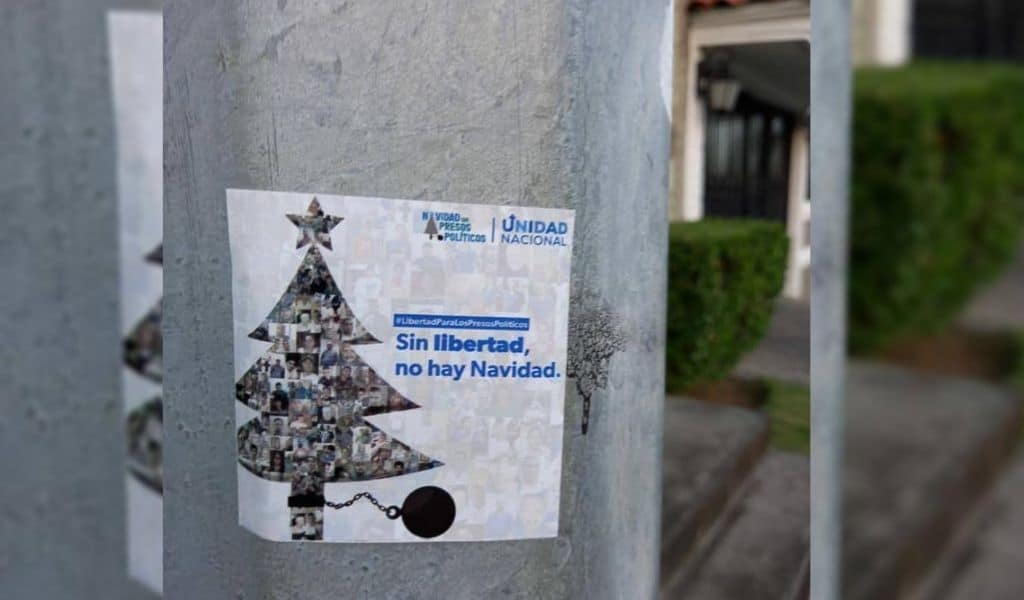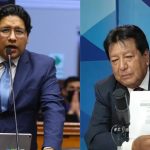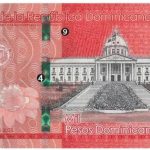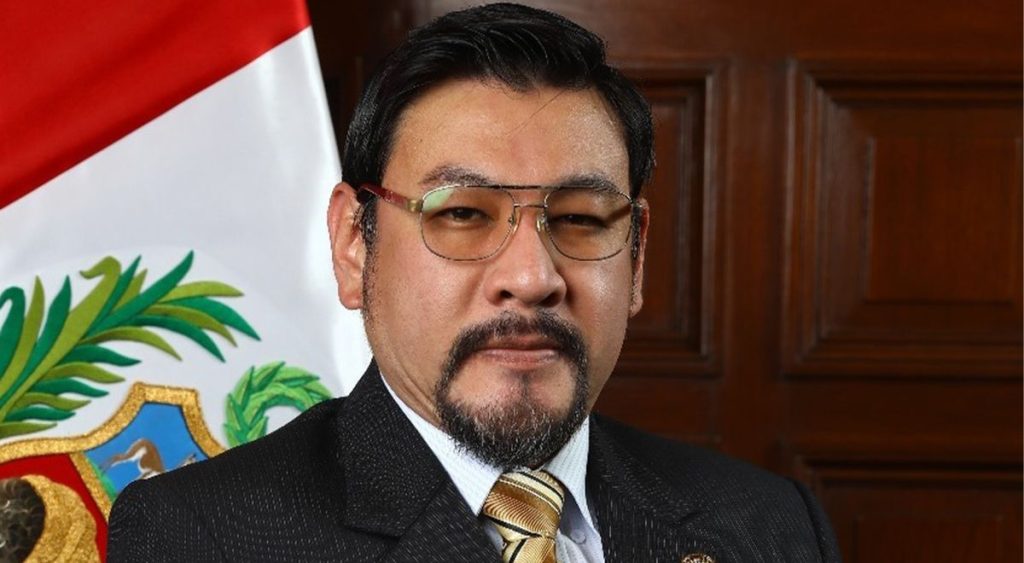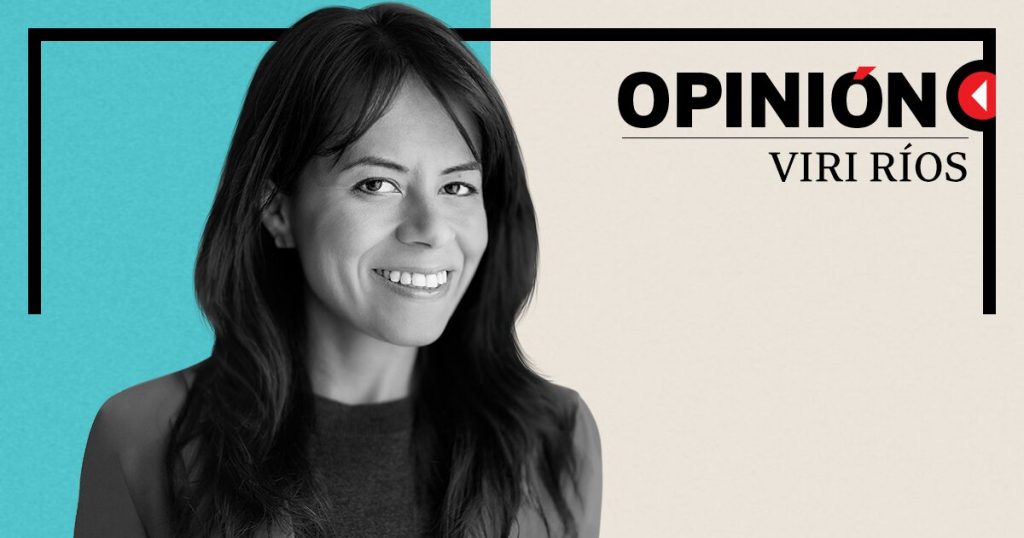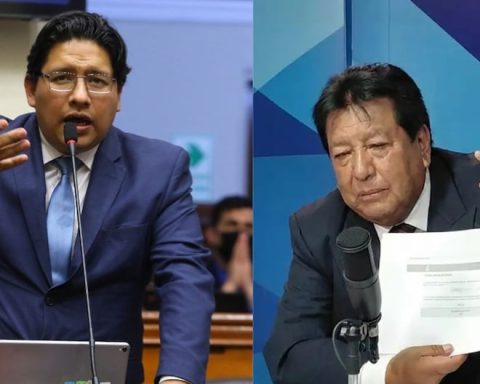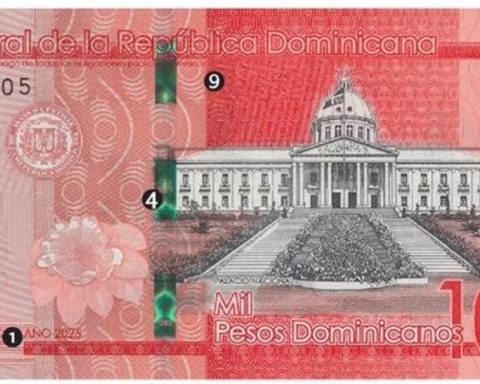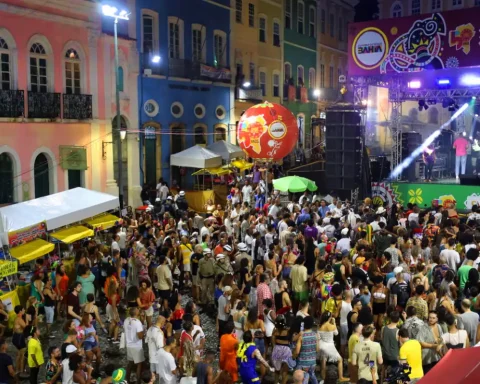The relatives of political prisoners, both those who are in the El Chipote police cell, and those who are in the prisons administered by the penitentiary system in Nicaragua, demanded their freedom this Sunday, while denouncing the implementation of isolation measures in both prison regimes.
For Ana Lucía Álvarez, a human rights defender, her relatives are “exposed to aggravated torture”. “They no longer even allow us to write handwriting on the bottles of water that we leave, because as our writing is a contact between them and they with us, they don’t even allow that,” he exemplified.
“Since the last visit, which was authorized in November, we don’t know anything. Visits are still not regularized by law in El Chipote. We do not have any additional information. Political prisoners are exposed to aggravated torture. In the case of the people (located in) Judicial Aid they have been incommunicado with the outside for almost six months, the only contact is the interrogator, “he added.
Alvarez, who is the sister of Tamara Dávila and niece of Ana Margarita Vijil, both political prisoners since last June, reported that in the country there are at least 167 people detained for political reasons, According to the Mechanism for the Recognition of Political Prisoners and Prisoners, an instance that even considers this data as an approximate figure, taking into account the lack of access to information by the dictatorship of Daniel Ortega and the fear of denouncing that it exists among the population, on pain of facing government retaliation.
They promote a “Christmas without political prisoners” campaign
The human rights defender participated in the television program This week, in which Karen Lacayo, coordinator of the Association of Political Prisoners and sister of Edward “La Loba” Lacayo, a political prisoner since 2019, was also interviewed.
Both presented what prisoners of conscience are experiencing and the demand for freedom in the context of the “Christmas without political prisoners” campaign, which is carried out for the fourth consecutive December by different political organizations, civil society, human rights defenders and the national and international voices are added.
Álvarez explained that, just in the context of the voting last November when Ortega was re-elected without democratic guarantees and without political competition, 43 people were arbitrarily detained, of which 15 people were released.
The political profile of the 28 remaining detainees allows us to reconstruct the objective of the regime’s maneuvers when carrying out the arrests, with which it seeks to silence critics and demobilize any possibility of protest.
“22 of the detainees belong to political organizations, and that is consistent with the repression and criminalization of the protest. Approximately six people identify as self-convoked, three are from social movements and civil society, four people are released from prison, ”Álvarez explained.
He also emphasized that the repressive apparatus has objectified territorial leaders with which the authorities seek to set an example and sow fear. “The arrests have a political objective of dissuading the popular organization, of dissuading, not only the person who is detained, but also seeking an exemplary effect in their community, in their political group,” he explained.
In addition to the complaints of isolation, impediments for there to be a true defense of the accused, Álvarez also said that, in many cases, the whereabouts of the detainees are not even known.
“The State does say that it has the person, but it does not show it. Not showing the person, when the family and the lawyer cannot see the person, (makes) there cannot be a certification that the State has it or not, if they are well, of their integrity. In all cases they have not had the right to a guaranteed visit. It has been this pattern of disappearance due to concealment of whereabouts. This continues in the observed cases ”, he added.
There are also some cases of people detained in recent weeks who have been transferred to prisons of the penitentiary system and not to El Nuevo Chipote, as has happened with the group of more than 30 people detained prior to the November vote. “This may be giving an account of several things: the DAJ (Directorate of Judicial Aid) is collapsed. There are many people there and, above all, they do not want to break the isolation of the people who are there. To enter more people would imply breaking that situation of isolation in which they have a group of people ”, Álvarez considered.
Precisely, last Wednesday, the Nicaraguan Center for Human Rights (Cenidh) reported several citizens captured last November who were in isolated police delegations and who were sent to the penitentiaries without notifying their families.
The Cenidh described the action as an “abuse of authority”, noting that in those prisons there are only convicted or convicted prisoners, which is not the case of any of the detainees, whose judicial cases have not been aired in the Power’s digital system. Judicial.
In the electoral context, the complaints of illegal detentions seem to have been concentrated in Río San Juan and Managua. As two notable variants in these arrests, compared to those that occurred previously, the accusations have now been based on the Cybercrimes Law, which punishes the news that the regime considers false, unlike the other arrests, sustained under an alleged “treason to Homeland”.
Regarding the situation of the released prisoners, the human rights defender has highlighted the state persecution that does not end against this sector of the population.
According to the data she cited on the television program, at least 150 former political prisoners have had to leave the country in recent months due to the systematic repression and harassment against them.
Complex situation in “La Modelo”
Karen Lacayo, sister of Edward Lacayo known as “La Loba”, a prisoner of conscience from Monimbó imprisoned since March 2019, is the coordinator of the Association of Relatives of Political Prisoners of Nicaragua. She relates that, like those in El Chipote, the political prisoners inside La Modelo prison have also suffered harsh experiences.
“My brother is in maximum security cells. Their situation is depressing. As a family member, I am distraught, desperate because in those prisons they are not given adequate care according to their illness and needs. They cut off food, medicine and the right to be treated by a doctor, “Lacayo said.
According to her, it is one of the characteristics of the dictatorship, mistreating political prisoners “for thinking differently”, which means that they are the objects of interrogation and physical and psychological mistreatment, in addition that the majority of relatives are prohibited from visiting.
Lacayo maintains that his brother has not received conjugal visits for two years, and he has not been able to see his boy. “He doesn’t even remember the pope anymore,” he said.
She also denounced that they told her to stop reporting the abuse against her brother, because they were going to take away the right to visit if she continued with the same thing.
“They have no limits, they do not have a heart, a conscience, just as they treat us, they treat our relatives, we are sad!”
Relatives of political prisoners transferred to the Jorge Navarro Penitentiary System, known as “La Modelo”, and the “La Esperanza” prison for women, also confirmed to CONFIDENTIAL that the authorities processed their visitor cards and received the parcel. However, they did not allow themselves to be seen. They were told this time that the visit would be scheduled every 21 days.
